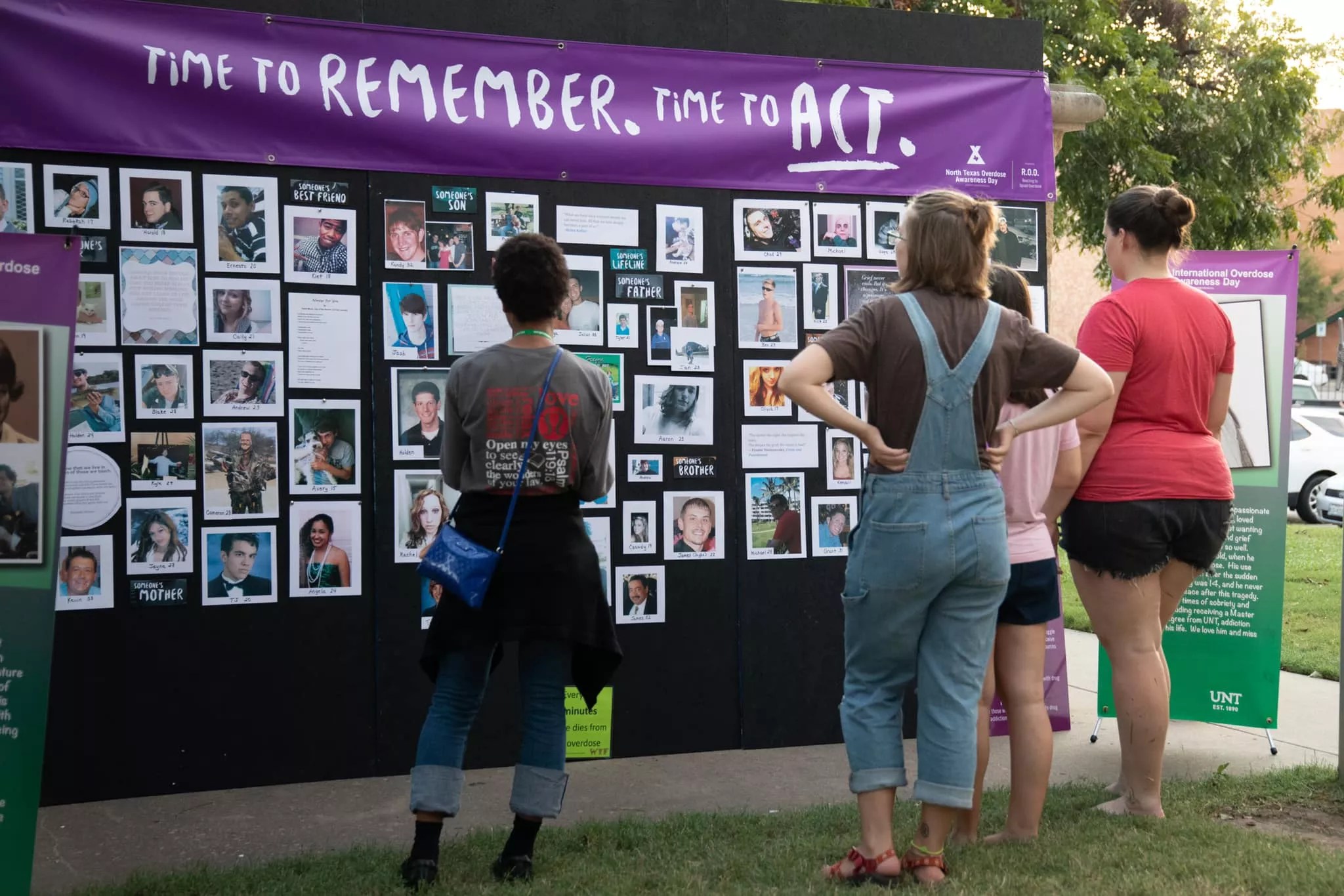
R.O.O. marketing photo

Audio By Carbonatix
Randy Roland grew up with a pretty great childhood. He was funny and outgoing, loved sports and in eighth grade was voted most likely to become president. But when he was 14, his dad died of heart failure.
His mother, Sharon Roland, said that after that, he was just never able to find peace. About a year later, he started using drugs.
Despite moving from marijuana to stronger and stronger substances as he got older, Randy eventually graduated from Texas Tech and got his master’s degree in psychology from the University of Nevada, Las Vegas. He wanted to help people as a drug and alcohol counselor. But in 2016, just before his brother’s wedding and not long after Randy turned 32, he fatally overdosed on fentanyl.
“He was a very special person,” Sharon Roland said. “He struggled with [drugs and alcohol] for 17 years almost. … We miss him every day.”
In 2001, International Overdose Awareness Day started in Australia and spread to countries around the world. Sharon Roland attended one of the events in Austin in 2016. When she couldn’t attend the following year, she decided that North Texas should have its own event.
So in 2018, Roland and other members of her family put on the first North Texas Overdose Awareness Day and formed the nonprofit R.O.O., Reacting to Opioid Overdose. “Roo” was the nickname Randy’s siblings had given him.
“Our mission is … to spread awareness and to provide resources and support for individuals and families that are struggling with addiction and substance use disorder and to fight the stigma of overdose and to remember those who have been lost,” Roland said.
North Texas Overdose Awareness Day will be held on Wednesday, Aug. 31, on the courthouse lawn in Denton. Roland said that the city of Denton has supported the organization and that multiple people from the city government, including the mayor, will attend the event.
Demonstrations, booths and information about opioid overdoses will be presented there, but the problem goes far beyond Denton.
In 2019, the latest data available from Texas Health Data, there were 163 opioid deaths in Dallas County, second in the state only to Harris County, which tallied 307. The number of deaths by opioids grew from 2016 to 2019.
According to the Centers for Disease Control and Prevention, in 2020 more than 68,000 people died after having some involvement with opioids, a toll 8.5 times higher than in 1999.
The original initiative for International Overdose Awareness Day (IOAD) came from the Salvation Army in Australia but has since been taken over by the Penington Institute, a not-for-profit organization based in Melbourne.
“From one event two decades ago to over 700 in 2021, IOAD is now the world’s largest annual campaign to end overdose, aiming to remember without stigma those we’ve lost, and stimulate action and discussion about evidence-based overdose prevention and drug policy,” said John Ryan, Penington Institute’s CEO, by email. “We connect lived experience with research to support cost-effective and evidence-based approaches that maximize community health and safety in relation to drugs, including pharmaceuticals and alcohol.”
Ryan said that the IOAD’s goal is simple: to help communities and frontline service workers reduce harm and to make public policy work for the people rather than against them.
“Drug control based on prohibition has failed, unintentionally enabling supply innovation which has created new substances that are often stronger and more toxic than before,” Ryan continued. “Investment in proven methods of overdose prevention and treatment is essential, such as Opioid Substitution Therapy and easy access to naloxone.”
Naloxone (name brand Narcan) is a drug that reverses the effects of an opioid overdose. R.O.O. will be providing free Narcan at the event on Wednesday along with a presentation about how to properly use it.
Roland said that the group has partnered with Denton ISD to provide Narcan for all district campuses and is working with many other organizations in the area.
“We’ve started a project with MHMR of Denton,” Roland explained. “We go to the bars in Denton and provide harm reduction kits that include Narcan, and then we provide Narcan for several of the small police departments in our area and different organizations, for churches, and for individuals.”
Dallas County also recognizes the problem and discussed a new opioid prevention campaign at an Aug. 15 Quality of Life, Arts and Culture Committee meeting. This is particularly important now since the Texas Tribune reported earlier this month that the Texas program that provides lifesaving drugs like Narcan has run out of money.
R.O.O. fills a part of that gap for North Texas and also provides additional help to the community with a food bank on Elm Street in Denton. Roland’s two eldest sons have a law office there.
“We had a carpenter build us a fairly [good-]sized pantry that’s out front and it’s stocked with food,” she said. “It’s open 24/7 to anyone who needs [it].”
She said Narcan is also available in the office, no questions asked.
“On our website we have contact information that if anyone calls us, we try to help them by giving them contact information for resources, depending on what the issue is – mental health, substance abuse, homelessness,” she continued. “We try to be a resource to help people find what they need.”
Roland hopes events like this will remove the stigma around dependence and opioid addiction while providing needed resources to help save lives.
Ryan agrees, explaining that overdoses are now the “leading cause of accidental deaths” among Americans. “We need government action but we also need action within our businesses, our schools, and our communities,” he said. “We need to start conversations, reduce stigma and take evidence-based action to end this unnecessary loss of life. We must address this crisis with the same urgency given to other health emergencies, such as COVID-19.”